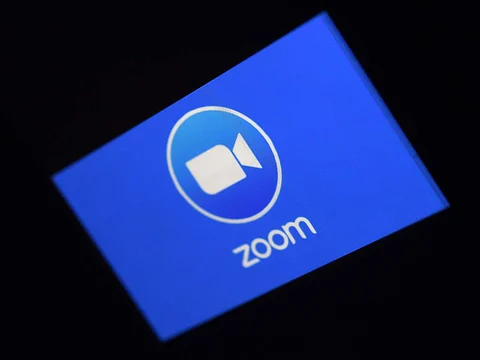

Originally from Chennai but now a bigwig in Silicon Valley, Velchamy Sankarlingam, President of Product and Engineering, Zoom, thinks the future of communication lies in the mix of virtual and physical.
Zoom has grown 169 per cent worldwide in Q1 of this financial year and has over 300 million active users, said media reports. In India too, the video conferencing app has expanded its reach and is now being used by small and medium businesses and individuals and most importantly by educational istitutions.
Here's why he believes that the video conferencing software will still be relevant even after the lockdown opens up and the pandemic begins to become a thing of the past. Here are excerpts from the conversation:
Has Zoom's usage come down gradually as the world comes out of lockdown?
The overall usage of Zoom has been going up. When the pandemic struck it was the middle of the school year and they had to shift to online classes in a hurry. They did their best. But now when they come back after the summer break, I think they are more prepared and organised. They realised that it's not going to be just physical anymore — it's going to be a mix of physical and virtual. We are seeing more adoption from the schools this academic year.
What about individual usage?
Even before COVID-19, there was a lot of usages since Zoom always had the free 40 minutes for anyone to log in and use. But the pandemic has made people more creative — I see weddings happening on Zoom, yoga classes, get-togethers happening on Zoom. In many ways, it is easier. It takes a lot of effort to organise a reunion. I have studied in Viruddhnagar, Yercaud and Chennai and we would have had only one reunion in the past But during COVID I have seen so many of them now. It's easy to organise on Zoom, there's no travel involved and it gets much easier. There is a Tamil-English stand-up comedy collective in California whose audience was local before the lockdown but once they started doing shows online they got audience across the world in countries like Singapore and Australia.
Zoom has had its fair share of security issues during the pandemic induced lockdown. While you have updated the security features multiple times what are the new changes one can find?
Zoom was a product we were selling to businesses and they have an IT department who manages all the security and decide the level of security they need. When we opened up the services for the schools and individuals, the mistake that we made was we did not realise that the teachers are not trained to take care of the security. Eric (Yuan) CEO, Zoom concentrated on innovation to make security user-friendly. We have a lot of teacher-training programmes. You now have one-button security, you can lock the room, kick someone out or decide whether participants can chat with each other.
You have had a few tie-ups for virtual hospitality. How does hospitality feature in the virtual world?
Virtual reality is getting as close to hospitality in real life as possible. In Formula-1, the VIP guests have access to the drivers and they meet with them and a lot of this is being recreated with Zoom. They are trying to get more privacy but get the audience to interact with the game.
What, according to you, is the future of virtual communication?
The pandemic has exposed what virtual communication can do. While I think some of it is here to stay, the rest will be rolled back as everything opens up. The future will be a hybrid of the virtual and physical communication.
